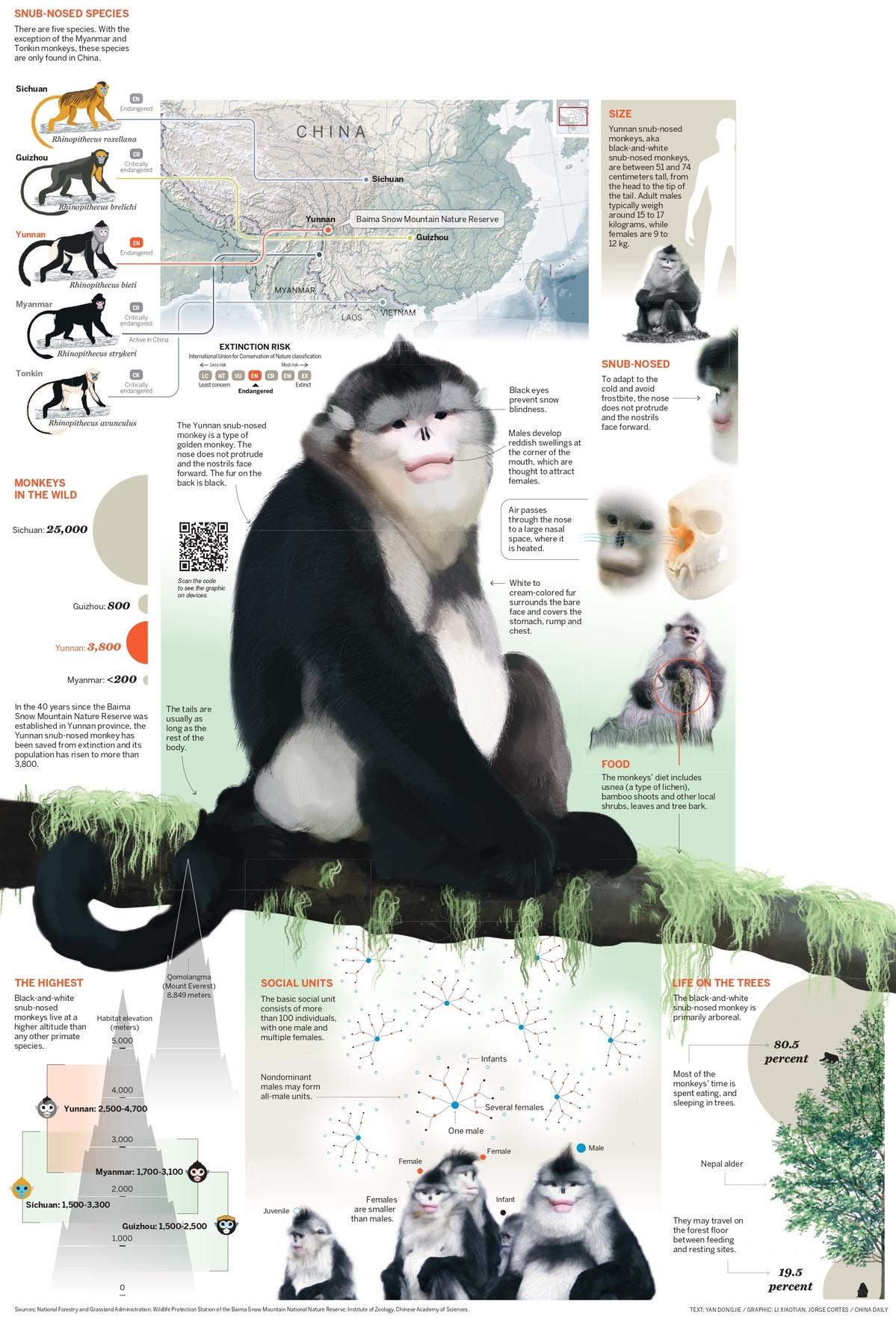Snub-nosed monkeys living the high life in Yunnan
Editor's Note: As protection of the planet's flora, fauna and resources becomes increasingly important, China Daily is publishing a series of stories to illustrate the country's commitment to safeguarding the natural world.

LI XIAOTIAN/JORGE CORTES/CHINA DAILY
Native primates have been saved from extinction by human help and a series of protective measures.
Since the Baima Snow Mountain Nature Reserve was founded in 1983, the Yunnan snub-nosed monkey, one of the world's most endangered primates, has been saved from extinction.
"The monkeys disappeared for a long time. In the 1980s, the local people and experts didn't know if any were still living in the mountains," said Yu Jianhua, a forest ranger at the reserve.
Yu has spent 26 years patrolling the monkeys' habitat, recording traces of them, rescuing sick or injured individuals and keeping an eye on the environment, as well as promoting awareness of animal protection among local people.
However, like many of his relatives, Yu used to be a hunter in Xiangguqing village, Weixi Lisu autonomous county, so initially his presence upset the monkeys.
"At first, they ran away at the sight of me and kept a watchful eye on me from very far away," said Yu, adding that as time passed, the monkey groups began to recognize his voice and appearance, and started to feel safe and close with him.
"We have lived here with the monkeys for generations. People in the mountains live as hunters, and that used to be our tradition. Now, though, we have learned that the monkeys are highly endangered and everybody has developed greater awareness. We love and protect them because we share the same home," the 70-year-old said.
The Yunnan snub-nosed monkey lives in high-altitude areas at more than 3,000 meters above sea level in the southwestern province of Yunnan and the neighboring Tibet autonomous region. According to a survey conducted in 2017-18 and published in 2021, the primate's population has risen to more than 3,800.
"This year, more than 10 infants have been born to the four monkey families that live in the national park, and more than 80 monkeys are usually seen eating and having fun in front of visitors," said Lai Jiandong, head of the Wildlife Protection Station of the Baima reserve.
In 2008, to raise public awareness of the monkeys, a national park was built around Xiangguqing village, which lies inside the Baima reserve, and was open to visitors.
Now, if you go to the park in Tacheng town, Weixi, you may see families of snub-nosed monkeys eating, grooming each other and jumping around right in front of you.
